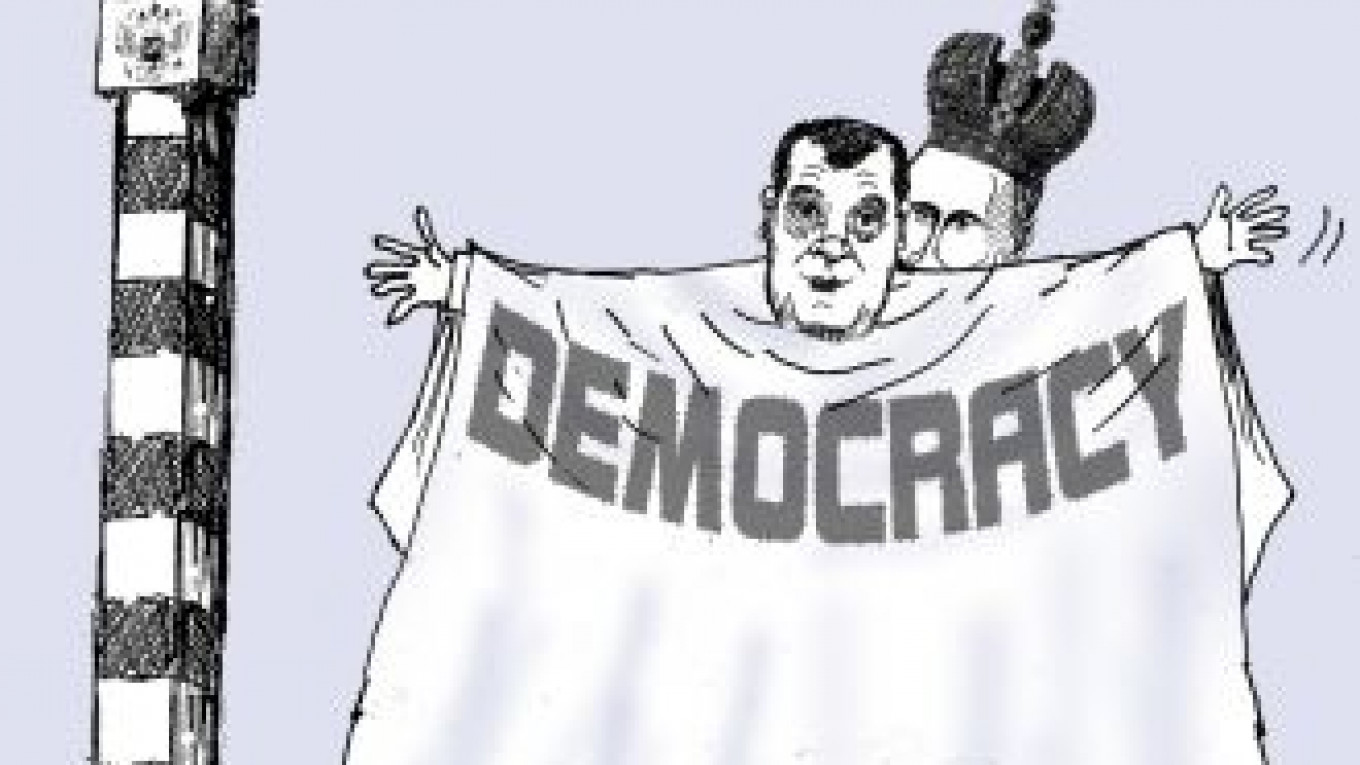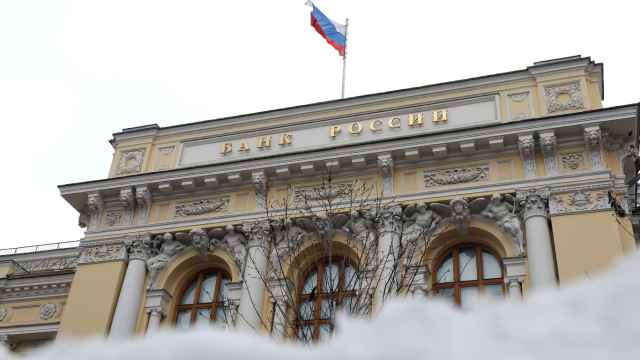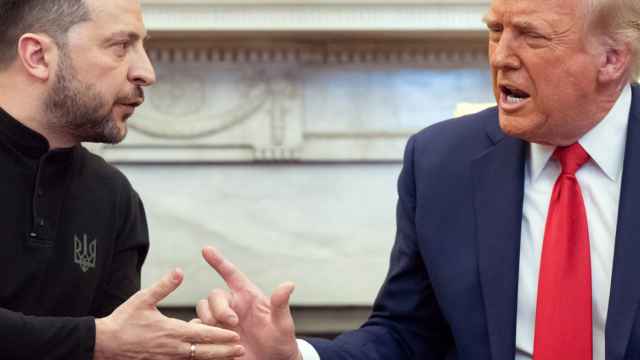In a recent interview to the Financial Times, President Dmitry Medvedev proclaimed that he wants a second term in office following the 2012 election, but that he would not run against Prime Minister Vladimir Putin, who put him in power in the first place. Such a rivalry, Medvedev implied, would damage the country's well-being and image.
Medvedev's statement should end speculation about whether he is running, yet it keeps the suspense alive regarding Putin, whose influence is far greater than that of Russia's meek president. Many, particularly in the West, would like to see Putin and his prickly, anti-Western authoritarianism pass from the scene.
Indeed, over the past 10 years, Russian foreign policy has been animated by defensiveness and suspicion. Russia even has uneasy relations with the congenitally nonthreatening European Union. It is touchy about the independence of the near-abroad countries, especially those politically or geographically close to the West — Belarus, Moldova, Ukraine and Georgia. More than a decade after the fact, the Kremlin still decries NATO's eastward enlargement as a security threat.
The reality, of course, is that NATO is as much of an offensive threat to Russia as Switzerland is. But it is not NATO's military power that Putin's Kremlin finds alarming; the real threat is the alliance's potential to "swallow" Moldova or Ukraine at some point. Creating a precedent for the democratization of post-Soviet space is a nightmare scenario for Putin and his cronies.
As in Soviet times, the main task of today's ruling elite — Putin and his former KGB associates — is to preserve their tightknit political and economic regime, built for their personal control and material benefit. Russian foreign policy is, as it was under the Soviets, an extension of official domestic priorities.
The current regime is clearly autocratic. Yet it aspires to democratic legitimacy in the eyes of Russian citizens and the international community. It is to this end that Medvedev performs his civilizing mission — participating in world forums, posting Twitter updates, berating rampant corruption and supporting "modernization" and the "rule of law."
The result of this duality — authoritarian establishment and Potemkin village democratic facade — is that Russia occupies a unique geopolitical no-man's land. A democratic Russia would want to catch up with the West and integrate into Western institutions. Yet this is not in the group interests of Putin's backers, the people who run — and own — Russia: its security, military and industrial complex.
Of course, these people have been personally integrated into Europe for two decades now. Their money is in European banks; their holiday villas are in the south of France, Tuscany and the Greek isles; and their children are educated in the poshest boarding schools. So, despite the current regime's tough, often anti-Western rhetoric, they are not at all interested in closing Russia off from the West. What they want is to prevent the integration with the West of Russia itself, for that would mean the end of their regime.
But to sustain the charade of a strong and prosperous Russia standing against the predations and hypocrisy of the West, the regime cannot be as authoritarian as Putin himself might wish. If it were, Swiss banks and international organizations would close their doors. So the regime's backers have a strong interest in maintaining its "democratic" side.
The West, despite its years of experience in dealing with the Soviets, is still a sucker for such
Janus-like behavior — especially now, when Medvedev presents such an endearing democratic face. In June, speaking at the St. Petersburg International Economic Forum, Medvedev mesmerized his audience by simultaneously sounding avant-garde and hackneyed. He attacked corruption, vowed that Russia is not, in fact, "building state capitalism" and promised legal and federal reforms. Decisions, he said, should be left to business or made locally, not in the Kremlin.
The St. Petersburg forum is mostly for international consumption. If Western bankers and investors want to buy snake oil, that is their business. But no one should leave such events thinking that anything Medvedev says means that Russia is changing.
U.S. Vice President Joe Biden, usually a sharp critic of Russia, arrived in Moscow in March, supposedly to convince Putin to surrender his presidential ambitions for 2012. A month later, talking to Putin by phone, Biden invited him to visit Washington, despite the fact that according to Russia's Constitution, the prime minister has no foreign policy role. Does the United States support Putin in the election? Or by recognizing Putin's historic importance, does Washington mean to convince him to leave power? No one knows.
Until Russia's internal political situation changes, relations with the West will remain unchanged and ambiguous. Putin, however, would be well advised to listen to Biden, who is rumored to have offered him important international positions, such as chairing the International Olympic Committee, or perhaps even leading the United Nations.
After all, Putin knows well the old Soviet playbook: The fate of previous KGB functionaries may await him. Dreaded secret police chief Lavrenty Beria, who operated the machinery of repression under Josef Stalin, was executed by the system he perfected after being sentenced to death in 1953 for "spying against the state."
In his decade in power, Putin has consolidated and strengthened the security forces, intimidated and jailed opponents and muzzled the media and courts. If he doesn't step down or aside so that Russia can move forward, the system he has created may turn his own methods against him.
Nina Khrushcheva, author of "Imagining Nabokov: Russia Between Art and Politics," teaches international affairs at The New School and is senior fellow at the World Policy Institute in New York. © Project Syndicate
A Message from The Moscow Times:
Dear readers,
We are facing unprecedented challenges. Russia's Prosecutor General's Office has designated The Moscow Times as an "undesirable" organization, criminalizing our work and putting our staff at risk of prosecution. This follows our earlier unjust labeling as a "foreign agent."
These actions are direct attempts to silence independent journalism in Russia. The authorities claim our work "discredits the decisions of the Russian leadership." We see things differently: we strive to provide accurate, unbiased reporting on Russia.
We, the journalists of The Moscow Times, refuse to be silenced. But to continue our work, we need your help.
Your support, no matter how small, makes a world of difference. If you can, please support us monthly starting from just $2. It's quick to set up, and every contribution makes a significant impact.
By supporting The Moscow Times, you're defending open, independent journalism in the face of repression. Thank you for standing with us.
Remind me later.






